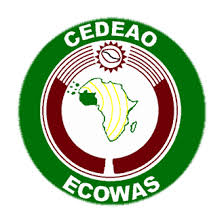ECOWAS: Committed to Regional Stability and Democratic Governance
By Raymond Enoch
The recent commentary titled “The Black Sheep in ECOWAS” presents a critical perspective on the challenges facing the regional bloc as an institution.
While concerns about governance and political stability in some member states are valid, it is imperative to recognize ECOWAS’ unwavering commitment to its mandate: which is ,promoting economic integration, security, and democratic governance across West Africa.

ECOWAS remains a cornerstone of regional stability, actively engaging with member states to uphold democratic principles, mediate conflicts, and support peaceful transitions.
ECOWAS has consistently intervened—whether through diplomatic negotiations, election monitoring, or peacekeeping efforts—to prevent democratic backsliding and ensure adherence to regional protocols.
The complex political dynamics in Mali, Burkina Faso, Niger, Guinea, Togo, and Guinea Bissau require nuanced, strategic engagement. While setbacks exist, ECOWAS has not abandoned its role. Recent efforts, such as Ghana’s diplomatic outreach to the AES bloc and Nigeria’s leadership within the AU, reflect the region’s commitment to constructive dialogue and sustainable solutions.
The call for an “ECOWAS of the People” aligns with ongoing institutional reforms aimed at strengthening civic engagement and regional integration. However, the responsibility for democratic consolidation does not rest solely on ECOWAS as an institution. Rather also the Member states and their citizens must uphold constitutional order, demand accountability, and foster inclusive governance across the region.
ECOWAS’ 50-year legacy of economic and political cooperation cannot be overshadowed by temporary challenges. The organization remains committed to fulfilling its mission, navigating the complexities of governance, and ensuring that West Africa remains a zone of peace, stability, and shared prosperity.
This is fundamental and all efforts democratically possible and within the framework of existing protocols must be seen to be upheld by all meaning citizens groups, the media and the government of member states in order for the Sub- Region to continue to transform its mandate into concrete realistic and achievable, tangible impact.








